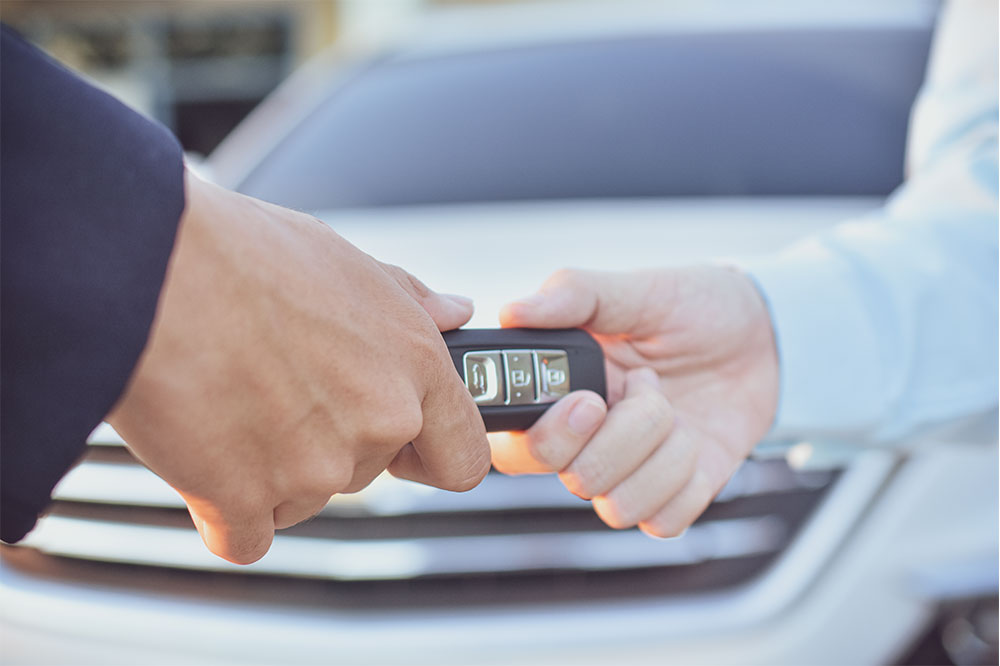6 Things to Know Before Renting a Car
Exploring new places by road holds a lot of promise, especially for a country as expansive as Canada. From the Rockies to the scenic beaches, there is much to do and see across the nation. For those who do not own a vehicle, one of the best ways to explore the country is by renting a car, as it takes away the hassle and planning often associated with relying on public transportation.

1. Documents required
A valid Canadian driver’s license is one of the most important things when renting a car in Canada. That said, some companies may be willing to offer rentals to American license holders as well. It is important to note that renting a car on a learner’s permit is not allowed.
Some foreign tourists may also be allowed to rent a car with their license for a maximum of 90 days if they have insurance. For that, an international driver’s permit will be required. Rental companies may also ask for a valid passport for identification purposes at the time of rental.
Those planning to travel across the border must also obtain special permissions and clearances from the company and insurance covering them in both countries. They must also meet all necessary passport and visa requirements to ensure a smooth travel experience.
2. Age limit
Age requirements and restrictions for car rentals differ by province and company. In most states, renters must be at least 20 or 21 years of age and hold a valid driver’s license. In some states, this may come down to 18 for certain rental companies. Some companies may charge younger drivers, such as those under 25, an additional per-day fee, i.e., around C$19, because of the higher risk of accidents associated with this age group.
3. Insurance coverage
Every car rental agreement requires valid insurance or liability coverage to avoid potential risks. Basic insurance, called Collision Damage Waiver (CDW), is almost always included in the rental cost. That being said, in case of an accident, this only covers a small part of the payment. That is why most people opt for additional insurance, which can be obtained in three different ways.
- The rent is paid for using a credit card that includes the insurance for a car rental.
- One can opt for the company’s collision damage waiver or liability insurance coverage at an additional cost.
- One can also choose to go with a third-party insurance plan to cover the car rental booking.
4. Cost and deposit requirements
The price of a car rental can vary greatly based on the company, travel season, vehicle model, car rental location, mileage allowance, and duration of the rental. Check with several area service providers to determine which offers the best rates. Be sure to look beyond the rental cost, as companies may levy hidden charges, such as additional driver fees, one-way drop-off fees, service taxes, mileage limitations and surcharges, and premium location fees. While smaller companies might not be able to offer the most competitive rates, they do make up for the difference in the quality of service and personalization offered.
When renting a car in Canada, it’s important to note that a credit card is required. At the time of rental, the hiring office freezes a certain amount on the card, also known as the “deposit.” This amount is considered a security for the vehicle in case of an accident or theft. It also covers the cost of refueling or cleaning if the renter is not careful with the car. The cost of this deposit depends on the location, supplier, and vehicle of choice. Premium cars typically require a higher deposit.
Most companies tend to refuse vehicle rentals without a deposit. That being said, in rare cases, they might allow rentals at a reduced rate if one signs up for the most expensive insurance policy for the car.
5. Best time to rent a car
The country’s intensely cold temperatures can make travel difficult most of the year. That is why the best time to visit most Canadian cities is between July and mid-September when the weather is warm and inviting. This is also when there are many activities to indulge in, offering an added element of excitement. That being said, because of the high demand, prices for rentals and accommodations also tend to be higher around this time.
6. Car pick-up procedure
When picking up the car from the rental office, one must pay attention to a few details to ensure they are not getting cheated.
- Scratches on the car
Document any scratches by taking photos and informing an assistant immediately. These details are generally recorded on a separate sheet of paper to maintain a proper vehicle history. - Insurance
Ensure that the company hands over all the insurance papers, including the level of coverage and other details. This is extremely important, especially in the case of accidents, thefts, or mishaps. - Gas tank
Most companies offer cars with a full gas tank and expect them to be returned the same way. Check for this detail when picking up and dropping off the car. - Keys and other documents
The company must hand over the keys and other legal documents that may be necessary to drive the car safely.




